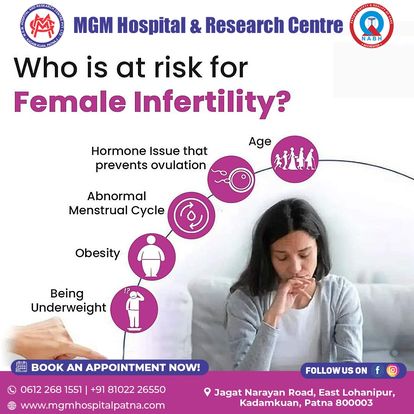How irregular periods can affect the chances of getting pregnant?
2023-06-07 - Admin | Blog

Irregular periods can indeed affect the chances of getting pregnant. Regular menstrual cycles typically occur every 21 to 35 days, with consistent durations and predictable ovulation patterns. However, irregular periods refer to menstrual cycles that vary in length, occur infrequently, or have unpredictable ovulation.
Here are a few ways irregular periods can affect fertility:
Ovulation timing: Irregular periods often indicate irregular ovulation or anovulation (lack of ovulation). Ovulation is the release of an egg from the ovaries and is necessary for conception. If ovulation is irregular or absent, it becomes more challenging to predict the fertile window, making it difficult to time intercourse for conception.
Infrequent ovulation: In some cases, irregular periods may indicate infrequent ovulation. When ovulation occurs less frequently, the opportunities for fertilization are reduced, decreasing the chances of getting pregnant.
Hormonal imbalances: Irregular periods can be caused by hormonal imbalances, such as polycystic ovary syndrome (PCOS). These imbalances can interfere with the regular development and release of eggs, making it more challenging to conceive.
Endometrial changes: Irregular periods may result in changes in the lining of the uterus (endometrium). The endometrium is where a fertilized egg implants and grows into a pregnancy. When the endometrium is not adequately prepared due to irregular periods, it can affect implantation and lead to difficulty in achieving pregnancy.
If you are experiencing irregular periods and are trying to conceive, it is advisable to consult with a healthcare provider or a reproductive specialist. They can help evaluate the underlying cause of your irregular cycles and provide appropriate guidance and treatment options to improve your chances of getting pregnant.
